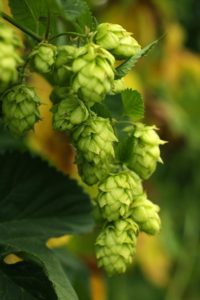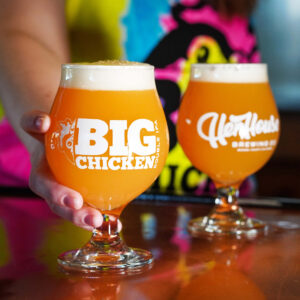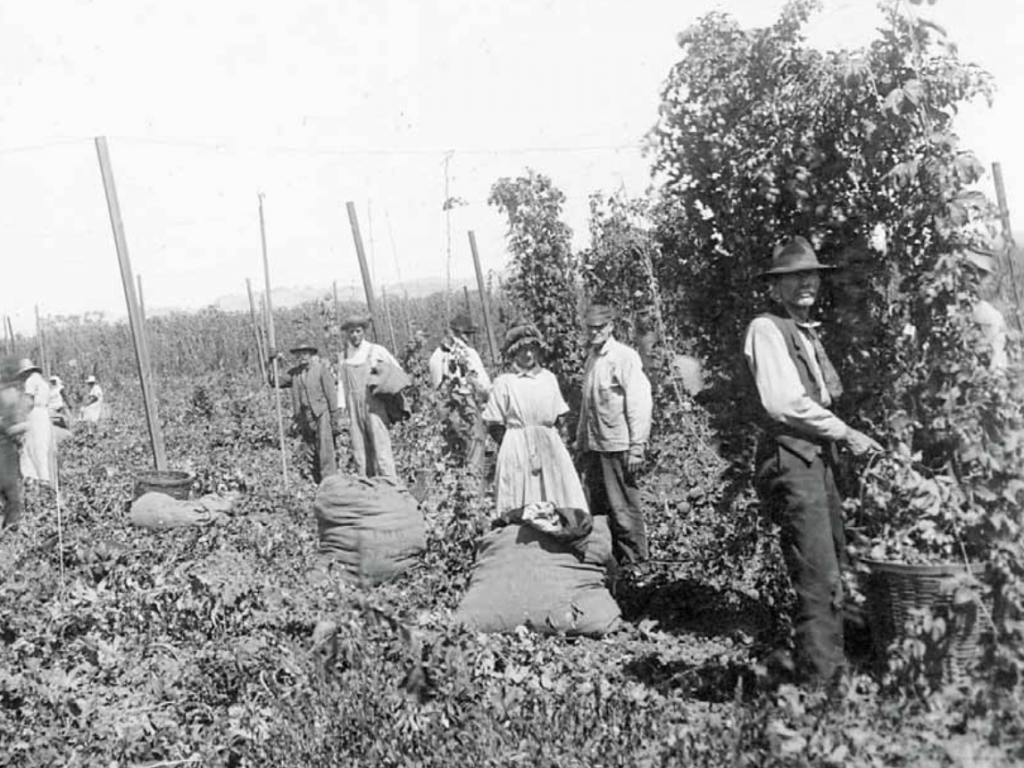These resinous flowers that give beer its bite were planted along the Russian River, on land now largely devoted to Chardonnay and pinot noir. Until it collapsed in the early 1950s, the hop industry had a century-long run, earning Sonoma the title “Hop Capital of America.”
“In the summers, before I was 12, I picked hops,” recalled Joe Rochioli Jr., 81, owner of Rochioli Vineyards on Westside Road near Healdsburg. “I hated it. Picking hops is the most tedious thing there is. You pick every little berry off and try not to get leaves in it. My mother wanted us to pick 100 pounds a day.”
The vines were trained on 10-foot-high poles, and later on trellis wires between the poles. When the hop buds (also called berries) were ripe, in late August or early September, the cluster-laden vines were cut from the poles and the flowers plucked from the vines. It was itchy, sticky work, as the resin from the hops stuck like glue to the hands, arms, face and clothing.

The fresh hops were dried in kilns, pressed and bagged for shipment to breweries across the country. During Prohibition, growers found a lucrative market in Europe, where crop failures had brewers begging for the bitter buds. Hop kilns dotted the Russian River Valley landscape, none more prominently than the Walters Ranch hop kiln, built in 1905 and now home to Hop Kiln Winery.
One purchaser of Sonoma hops was Grace Brothers Brewing, founded in 1897 by Frank and Joseph Grace. They acquired the Metzger brewery, near what is now Railroad Square in Santa Rosa, and after a fire, rebuilt the brewery. It survived through Prohibition, with several closings and reopenings, shuttering for good in 1966. At the peak of production in the 1930s, according to Santa Rosa historian Gaye LeBaron, Grace made one of the top three beers in California, along with Acme in San Francisco and Buffalo Brewing Co. in Sacramento. Today the Hyatt Vineyard Creek Hotel occupies the former Grace Brothers site.
The Sonoma hop market bottomed out in the mid-1950s, attributed to the fading American taste for bitter beers, diseased vines, less expensive mechanized farming in Sacramento, Oregon and Washington state, a booming apple and prune business, and the post-Prohibition resurrection of grape growing.
Still, a few hop plots remain, including Moonlight Brewing owner Brian Hunt’s quarter- acre patch in Fulton, and the Sonoma County Historical Society’s planting next to Hopkins River Ranch in Healdsburg. The hop industry has faded in Sonoma, yet the region’s brewing future appears to be limitless.









